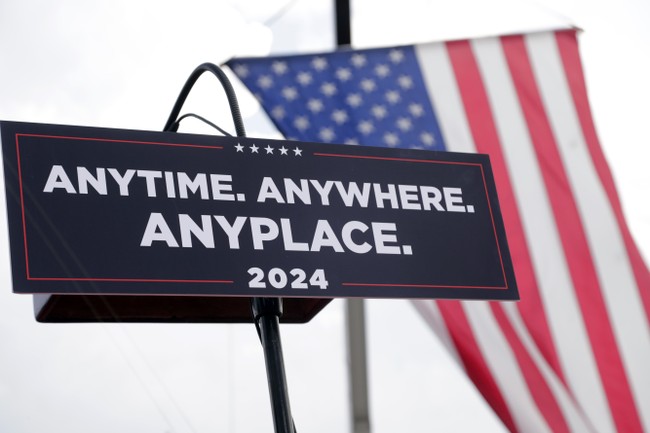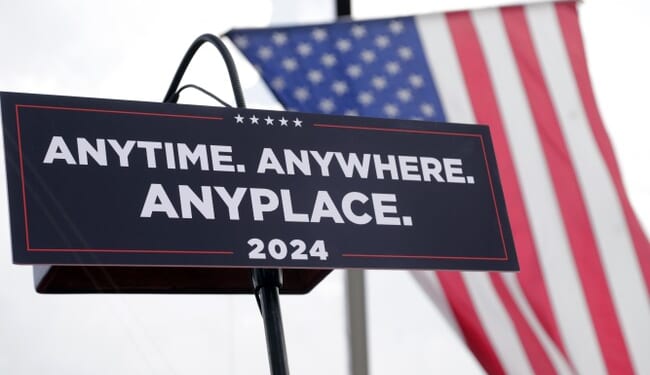
The next battle in the new civil war may not be North vs. South, but rather East vs. Midwest. Republicans in Nebraska’s legislature have been working to enact a change to the state’s electoral college rules, making it the 49th state to award it’s presidential electors in a winner-take-all fashion. The only other state to split its electors in that fashion is Maine. But now Democratic leaders in Maine are saying that if Nebraska does this, they will try to do the same thing in the name of “restoring balance.” The choice is up to each of them, of course, but such a decision clearly gives the appearance of being cynical and political in nature. And like everything else in American politics this year, the action is yet again swirling around Donald Trump. (Politico)
If Nebraska Republicans changed their electoral college rules to help Donald Trump this November, a top Maine Democrat said her party would try to do a similar move to counteract the impact.
The state House majority leader, Maureen Terry, said in a statement on Friday that the Democratic-controlled Legislature would “be compelled to act in order to restore fairness,” should Nebraska’s Republican governor sign legislation that made the state a winner-take-all election in 2024.
Currently, both Maine and Nebraska award a portion of their electoral votes on the basis of which candidate wins individual congressional districts. That structure seems likely to result in Trump winning one Electoral College vote from Maine and Joe Biden winning one from Nebraska this November.
The GOP in Nebraska has been pushing for this change for a while now. They split their electoral votes based on which candidate wins each congressional district. The District containing Omaha has been trending blue for a while now and the GOP is tired of giving away an electoral vote. Trump won Nebraska in 2020, taking four electoral votes while Biden took one.
Maine does the same thing. Most of the state’s population is packed into the southern edge and they tend to vote Democratic, while the majority of the counties to the north vote red. Biden won Maine’s electoral votes three to one. Between the two states, we’re only talking about two elector votes out of 538. But in a race as close as this one might still wind up being, that could make all the difference in the world.
Splitting electoral votes in this fashion is legal and constitutional, even if it doesn’t appear to keep with the intentions of the founders. They created a system for selecting presidents that pitted each state against the rest, ensuring that even the smaller, less-populated states would have a voice in the process. The system used by Maine and Nebraska edges closer to a popular vote model. Of course, states abandoning the votes of their own people in favor of awarding their electoral votes to the winner of the national popular vote doesn’t make sense either, but lots of blue states are trying to do that also, including Maine.
One complicating factor in all of this is the fact that the state legislatures of both Maine and Nebraska have adjourned for the season. In order to make these changes, the governors of each state would have to call them back for a special session. Both governors appear to be willing to do so, even though such a move would have both budget and scheduling implications. While these proposed moves would return us to a more consistent system of electing presidents, it seems like a lot of trouble to go through for something that likely will have no impact on the upcoming election. They would simply be subtracting one electoral vote for each candidate and adding another one elsewhere.

